#jean Jacques Benjamin
Explore tagged Tumblr posts
Text
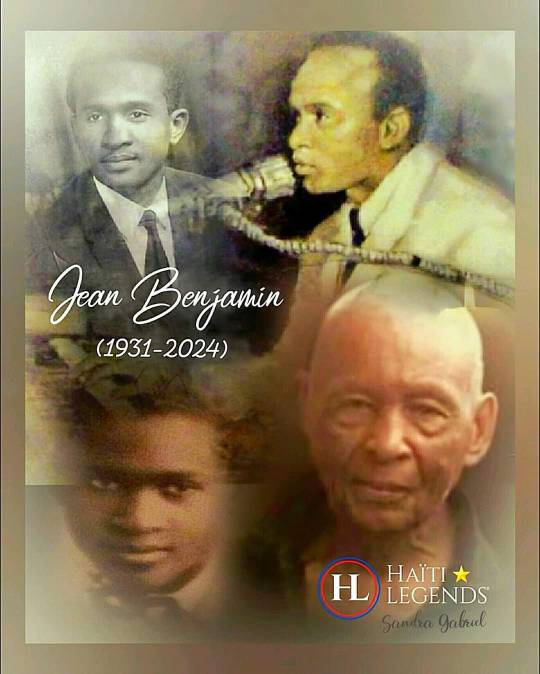
À la Mémoire de JEAN BENJAMIN
Repose en Paix
Nous adressons nos plus sincères condoléances à la famille, aux amis et aux admirateurs de Jean Jacques Benjamin, un musicien de l'ombre dont la lumière a brillé intensément dans les domaines de la musique et de la culture haïtienne. Né le 14 septembre 1931, Jean Benjamin n'était pas seulement un chanteur, mais aussi un pianiste et compositeur profond. Son décès le 2 mai 2024 nous a laissé un vide qui ne pourra jamais être comblé, mais son héritage résonnera à jamais à travers sa musique et les vies qu'il a touchées.
La voix de Jean était un phare d'inspiration et de joie pour un groupe élite de mélomanes, portant la riche histoire et l'esprit vibrant d'Haïti à travers les générations et les frontières. En tant que chanteur principal pour l'Orchestre Riviera Hotel sous la direction du Maestro Edner Guignard dans les années 1950, aux côtés de légendes telles que le regretté Guy Durosier, Jean Benjamin a mis en avant l'essence de la musique Big Band haïtienne, captivant les cœurs et les âmes avec des standards de Boléro haïtien jazzy et des compositions originales.
Ses mélodies, de la poignante: "Gisèle" dédiée à sa première épouse à l'émouvante: "L'amour", sont des trésors intemporels qui continuent d'inspirer et d'élever. L'art de Jean était un pont, reliant le passé au présent, la tradition à l'innovation. Sa musique, immortalisée par des enregistrements et des performances, reste un témoignage de son talent extraordinaire et de sa passion inébranlable pour son art.
Nous sommes reconnaissants pour les souvenirs, la musique et l'héritage que Jean Jacques Benjamin laisse derrière lui.
À son frère—Dr Rodrigue Benjamin et Famille
À ses enfants—Ylder Benjamin, Esmeralda Benjamin Laraque, Claudette Benjamin, Jean Jacques junior Benjamin, Grevy Benjamin, Esther Benjamin.
Aux petits-enfants—Marcus Benjamin, Laurent Laraque, Sebastian Laraque, Christopher C. Raymonvil ; et un arrière-petit-fils ;
À ses neveux et nièces—Jean René Foureau et famile; Hervé et Ketly Foureau Dorsinville; Marlene Benjamin et famille; Caroline Benjamin Fleurimont et famille;
Franklyn Benjamin Jr et famille; Frankline Benjamin et famille; Nadine Benjamin et famille; Gregoire Benjamin et famille; Sandra Benjamin et famille; Patrice Benjamin et famille
À — Gilbert Laraque, Robert-Charlot Raymonvil et toute la famille élargie
Aux amis proches —Serge Morel, Leopold Molière aka Yoyo,
nos pensées vous accompagnent en cette période difficile. Puissiez-vous trouver du réconfort dans le fait que l'esprit de Jean continue de vivre à travers sa musique et les innombrables vies qu'il a touchées. Sa vie a été bien vécue, et ses contributions à la musique et à la culture continueront d'être célébrées pour les générations à venir.
Repose en paix, Jean Benjamin, une véritable légende dont les mélodies résonneront à jamais dans le cœur de ceux qui ont eu le privilège de vivre votre art.
#SGLmt
#Haitilegends
__________________
In Loving Memory of JEAN BENJAMIN
Rest in Peace
We extend our deepest condolences to the family, friends, and admirers of Jean Jacques Benjamin, an unsung music man whose light shone brightly in the realms of Haitian music and culture. Born on September 14, 1931, Jean Benjamin was not just a singer, but a profound pianist and composer. His passing on May 2, 2024, has left us with a void that can never be filled, but his legacy will forever resonate through his music and the lives he touched.
Jean's voice was a beacon of inspiration and joy for an elite group of melomanes, carrying the rich history and vibrant spirit of Haiti across generations and borders. As a premier vocalist for Orchestra Riviera Hotel under the direction of Maestro Edner Guignard in the 1950s, alongside legends like the late Guy Durosier, Jean Benjamin brought the essence of Haitian Big Band music to the forefront, captivating hearts and souls with jazzy Haitian Bolero Standards and original compositions.
His melodies, from the poignant "Gisèle" dedicated to his first wife to the stirring "L'amour," are timeless treasures that continue to inspire and uplift. Jean's artistry was a bridge, connecting the past with the present, tradition with innovation. His music, immortalized by recordings and performances, remains a testament to his extraordinary talent and his unwavering passion for his craft.
We are grateful for the memories, the music, and the legacy Jean Jacques Benjamin leaves behind.
To his brother—Dr Rodrigue Benjamin et Famille
To his children—Ylder Benjamin, Esmeralda Benjamin Laraque, Claudette Benjamin, Jean Jacques junior Benjamin, Grevy Benjamin, Esther Benjamin.
His grandchildren—Marcus Benjamin, Laurent Laraque, Sebastian Laraque, Christopher C. Raymonvil; and one great-grandchild.
To his nephews and nieces—Jean René Foureau et famile; Hervé et Ketly Foureau Dorsinville; Marlene Benjamin et famille; Caroline Benjamin Fleurimont et famille;
Franklyn Benjamin Jr et famille; Frankline Benjamin et famille; Nadine Benjamin et famille; Gregoire Benjamin et famille; Sandra Benjamin et famille; Patrice Benjamin et famille
To —Gilbert Laraque, Robert-Charlot Raymonvil and the entire extended family.
To his close friends:—Serge Morel, Leopold Molière aka Yoyo,
our thoughts are with you during this difficult time. May you find comfort in the knowledge that Jean's spirit lives on through his music and the countless lives he touched. His was a life well-lived, and his contributions to music and culture will continue to be celebrated for generations to come.
Rest in peace, Jean Benjamin, a true legend whose melodies will forever echo in the hearts of those who had the privilege to experience your artistry.
Sandra Gabriel Lmt
#SGLmt
#Haitilegends
__________________
From Jean Benjamin with Love!
https://on.soundcloud.com/iTeJGcL9F1EzMMS16
Voici quelques musiques supplémentaires.
Grevy Newton Benjamin
______________
Explore # 👈🏾
#JeanBenjamin
#JeanJacquesBenjamin
#HaitilegendsIcons
#HaitianMusiciansHL
#Vocalist #HaitianPianist
#Chanteur #PianisteHaïtien #Compositeur #auteurcompositeurinterprète
#OrchestreRivieraHotel
#EdnerGuignard #Gisèle
#PaixÀSonÂme
#LégendesHaïtiennes
#Composer #singersongwriter
#OrchestraRivieraHotelDHaïti
#EdnerGuignard #Gisèle
#HaitilegendsRestInPeace
#Paixasonâme
#RobertCharlotRaymonvil
#GrevyNewtonBenjamin
#Haītilegends #SGLmt #collage by Sandra Gabriel Haitilegends
#jean benjamin#haiti legends#haitilegends#haitian music#golden era#haitian singers#jean Jacques Benjamin#vocalist#pianist#singer songwriter#haitian#haitilegendsIcons#rest in peace#haitian jazz#bolero
7 notes
·
View notes
Text









"Gonna hold ya, gonna kiss ya in my arms, gonna take ya away from harm, gonna hold ya, gonna kiss ya in my arms, gonna take ya away from harm."
#artist is jacques louis david#artist is richard westall#artist is max ginsburg#artist is anne louis girodet#artist is cristobal rojas#artist is paul drouot#artist is jean broc#cant find artist#artist is benjamin vautier#art history#art#arthistoryedit#ok im emotional this week so we all get depressing art
255 notes
·
View notes
Text
yazı yazma ve bilme açlığı, yaşamayı reddedişi içinde taşıyordu. kültür denizinde yüzmeyi seviyordum.
jean paul sartre - sözcükler
#kitap#edebiyat#blogger#felsefe#kitaplar#blog#kitap kurdu#charles bukowski#jean paul sartre#bulantı#sözcükler#michel foucault#georges perec#uyuyan adam#oğuz atay#tutunamayanlar#selçuk baran#simone de beauvoir#sabahattin ali#içimizdeki şeytan#marcus aurelius#kendime düşünceler#friedrich nietzsche#albert camus#john berger#franz kafka#walter benjamin#theo van gogh#jacques lacan#fernando pessoa
7 notes
·
View notes
Text

Movie #49 of 2024: The Bouncer
Speaking of B entitled b-action films, this one beats most. If you can try to find the non-english dub. Whatever weird Walloonish/Flemish dialects they're speaking adds a lot to this JCVD as everyman/regular Belgian guy. Let the man speak his mother tongue. God damn.
#the bouncer#action#drama#thriller#julien leclercq#Jérémie Guez#Jean-Jacques Hertz#François Roy#Robrecht Heyvaert#Benjamin Courtines#french#english#flemish#dutch#italian#arri alexa mini#anamorphic#2018#49
1 note
·
View note
Text

Recently Read: Snowpiercer series
Snowpiercer 1: The Escape written by Jacques Lob, illustrated by Jean-Marc Rochette
Snowpiercer 2: The Explorers written by Benjamin Legrand and Jacques Lob, illustrated by Jean-Marc Rochette
Snowpiercer 3: Terminus written by Olivier Bocquet, illustrated by Jean-Marc Rochette
All three of these volumes were really good. I had recently watched the movie a few months ago and once I figured out that it was based off a graphic novel series, I had to find them and read them! Thank God for my local library system as they had all three volumes and I was able to read them over this long 4th of July weekend.
While the first volume is all you really need to read if you want to know more about the movie, I do highly recommend that you read the other two as well. It's an interesting look into this world and I did enjoy this look, this peek. I can see on StoryGraph that there are some prequels, so I may need to find out if my library has those as well. Or, if they don't, if I can request them.
What movies prompt you to read the book/graphic novel they are based on?
#snowpiercer#jacques lob#benjamin legrand#olivier bocquet#jean-marc rochette#reading#booklr#library book#graphic novel
0 notes
Text
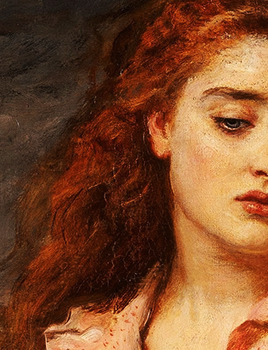
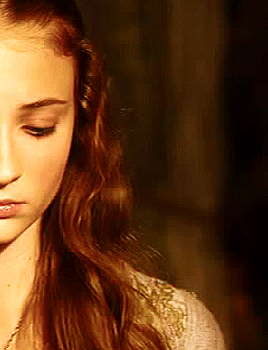


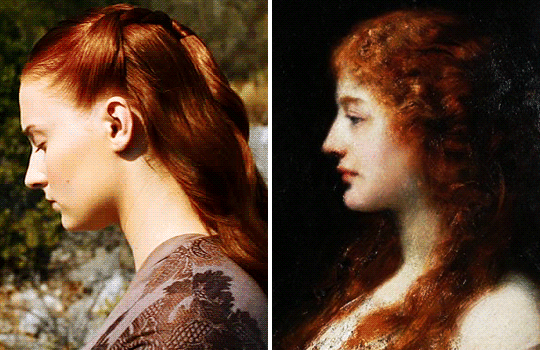


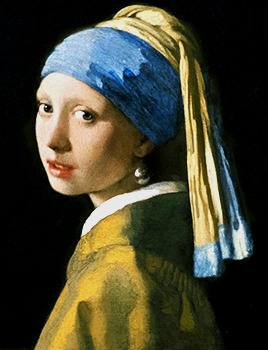
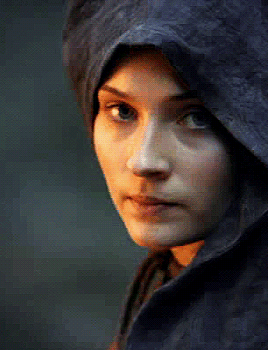


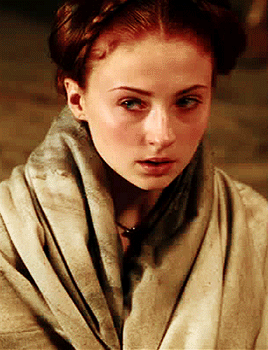
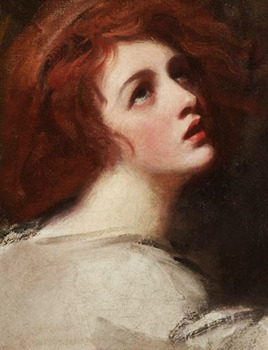


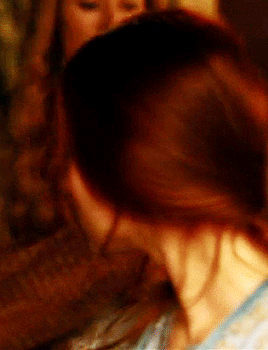
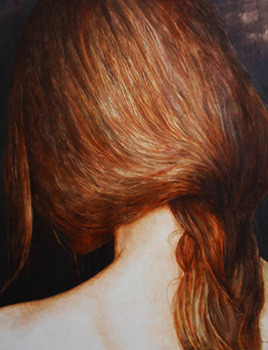
Sansa Stark┃the living painting
John Millais. The Martyr of the Solway. 1871. │ Gabriel von Max. Young woman with flowers in her hair. │ Sophie Gengembre Anderson. Portrait of a Young Girl. │ James Carroll Beckwith. The Embroiderer. │ Arthur Hughes. Juliet and her Nurse. 1867–1872. │ Thomas Benjamin Kennington. Contemplation. │ Alexandre Cabanel. Fallen Angel. 1847. │ Frederick Sandys. Helen of Troy. 1867. │ Ruth Sanderson. Arthur and Guinevere. │ Paul Delaroche. The Execution of Lady Jane Grey. 1833. │ Johannes Vermeer. Girl with a Pearl Earring. 1665. │ Stephen Phillips. Nancy Price as Calypso in Ulysses. 1902. │ P. J. Lynch. Eithlinn, Daughter of Balor. 2000. │ Charles Allen Winter. Portrait of a Woman. 1919. │ William Oxer. Amor Aeternus. 2022. │ George Romney. Emma Hart as Miranda. 1786. │ Bertalan Székely. Red Haired Girl. 1875. │ John Roddam Spencer Stanhope. Thoughts of the Past. 1859. │ Jean-Jacques Henner. Head Of A Young Girl In A Blue Dress. │ John William Waterhouse. Ophelia. 1910. │ Rudolf Kosow, Geheimnisvoll. │
#painting attributions are under the cut 💖✨#sansa stark#gameofthronesdaily#got#game of thrones#gotedit#gameofthronesedit#asoiafwomensource#sansasource#gotsansastark#sansastarkedit#sophie turner#my sets
2K notes
·
View notes
Text
Simple Art Posters & Canvas Prints
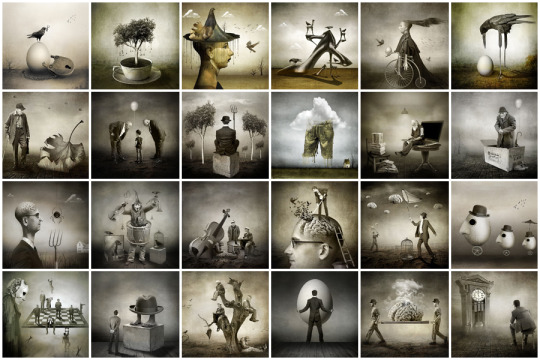
100+ Famous Artists of All Time
#Francois Boucher#Jacques-Louis David#Jean Leon Gerome Ferris#Jean-Honorй Fragonard#John Trumbull#Nicolas Poussin#Rembrandt van Rijn#Sebastiano Ricci#Sir Peter Lely#Theodore Chasseriau#Abraham Bloemaert#Adolphe Yvon#Albert Besnard#Allaert Van Everdingen#Antoine Coypel#Benjamin Robert Haydon#Carle van Loo#Charles Joseph Natoire#Charles Louis Lucien Muller#Ditlev Conrad Blunck
70 notes
·
View notes
Text
ENCONTRE UM AUTOR:
Envie sugestões. Leia uma citação no modo aleatório.
Autores Desconhecidos
Adélia Prado
Adrian Tchaikovsky
Affonso Romano de Sant’anna
Alain de Botton
Albert Einstein
Aldous Huxley
Alexander Pushkin
Amanda Gorman
Anaïs Nin
Andy Warhol
Andy Wootea
Anna Quindlen
Anne Frank
Antoine de Saint-Exupéry
Aristóteles
Arnaldo Jabor
Arthur Schopenhauer
Augusto Cury
Ben Howard
Benjamin Alire Sáenz
Benjamin Rush
Bill Keane
Bob Dylan
Brigitte Nicole
C. JoyBell C.
C.S. Lewis
Carl Jung
Carlos Drummond de Andrade
Carlos Fuentes
Carol Ann Duffy
Carol Rifka Brunt
Carolina Maria de Jesus
Caroline Kennedy
Cassandra Clare
Cecelia Ahern
Cecília Meireles
Cesare Pavese
Charles Baudelaire
Charles Chaplin
Charlotte Nsingi
Cheryl Strayed
Clarice Lispector
Claude Debussy
Coco Chanel
Connor Franta
Coolleen Hoover
Cora Coralina
Czesław Miłosz
Dale Carnegie
David Hume
Deborah Levy
Djuna Barnes
Dmitri Shostakovich
Douglas Coupland
Dream Hampton
E. E. Cummings
E. Grin
E. Lockhart
EA Bucchianeri
Edith Wharton
Ekta Somera
Elbert Hubbard
Elizabeth Acevedo
Elizabeth Strout
Emile Coue
Emily Brontë
Ernest Hemingway
Esther Hicks
Faraaz Kazi
Farah Gabdon
Fernando Pessoa
Fiódor Dostoiévski
Florbela Espanca
Franz Kafka
Frédéric Chopin
Fredrik Backman
Friedrich Nietzsche
Galileu Galilei
Georg Wilhelm Friedrich Hegel
George Orwell
Hafiz
Hanif Abdurraqib
Helen Oyeyemi
Henry Miller
Henry Rollins
Hilda Hilst
Iain Thomas
Immanuel Kant
Jacki Joyner-Kersee
James Baldwin
James Patterson
Jane Austen
Jean Jacques Rousseau
Jean Rhys
Jean-Paul Sartre
Jeremy Hammond
JK Rowling
João Guimarães Rosa
Joe Brock
Johannes Brahms
John Banville
John C. Maxwell
John Green
John Wooden
Jojo Moyes
Jorge Amado
José Leite Lopes
Joy Harjo
Juan Ramón Jiménez
Juansen Dizon
Katrina Mayer
Kurt Cobain
L.J. Smith
L.M. Montgomery
Leo Tolstoy
Lisa Kleypas
Lord Byron
Lord Huron
Louise Glück
Lucille Clifton
Ludwig van Beethoven
Lya Luft
Machado de Assis
Maggi Myers
Mahmoud Darwish
Manila Luzon
Manuel Bandeira
Marcel Proust
Margaret Mead
Marina Abramović
Mario Quintana
Mark Yakich
Marla de Queiroz
Martha Medeiros
Martin Luther King
Mary Oliver
Mattia
Maya Angelou
Mehdi Akhavan-Sales
Melissa Cox
Michaela Chung
Miguel de Cervantes Saavedra
Mitch Albom
N.K. Jemisin
Neal Shusterman
Neil Gaiman
Nicholas Sparks
Nietzsche
Nikita Gill
Nora Roberts
Ocean Vuong
Osho
Pablo Neruda
Patrick Rothfuss
Patti Smith
Paulo Coelho
Paulo Leminski
Perina
Peter Ilyich Tchaikovsky
Phil Good
Pierre Ronsard
Platão
Poe
R.M. Drake
Raamai
Rabindranath Tagore
Rachel de Queiroz
Ralph Emerson
Raymond Chandler
René Descartes
Reyna Biddy
Richard Kadrey
Richard Wagner
Ritu Ghatourey
Roald Dahl
Robert Schumann
Roy T. Bennett
Rumi
Ruth Rendell
Sage Francis
Séneca
Sérgio Vaz
Shirley Jackson
Sigmund Freud
Simone de Beauvoir
Spike Jonze
Stars Go Dim
Steve Jobs
Stephen Chbosky
Stevie Nicks
Sumaiya
Susan Gale
Sydney J. Harris
Sylvester McNutt
Sylvia Plath
Sysanna Kaysen
Ted Chiang
Thomas Keneally
Thomas Mann
Truman Capote
Tyler Knott Gregson
Veronica Roth
Victor Hugo
Vincent van Gogh
Virgílio Ferreira
Virginia Woolf
Vladimir Nabokov
Voltaire
Wale Ayinla
Warsan Shire
William C. Hannan
William Shakespeare
Wolfgang Amadeus Mozart
Yasmin Mogahed
Yoke Lore
Yoko Ogawa
322 notes
·
View notes
Text
France, America and the Love for 'Liberté'
Warning: wall of text. This post is nearly 5000 words long.
TL; DR: France contributed to the formation of America. Why did Himaruya design France like that? Some relevant information about the relationship between France - UK and France - US.
Part 1: The Love for 'Liberté'
I've talked about this a lot, but now I'll summarize it a bit. Basically, it's not without reason that I assume that France played a huge role in giving birth to America.
The reason the French supported America in the war for independence from Britain included 2 reasons:
1. Competition with England. This is too obvious.
2. The French Enlightenment caused the French to risk their lives in North America. Their help to Americans is to realize their dreams and ideals of liberty and republican government. (Museum of the American Revolution, unknown)
Helping America is not only the French monarchy, but also the French people. The Americans' determination to make a revolution created a great wave throughout France (Office of the Historian, unknown). It can be said that America was born from the French Enlightenment movement. Americans were directly taught by the French about ideas about human equality. At the heart of every American uprising is Enlightenment thought. In addition, precisely because Enlightenment ideas were transmitted directly from France to America, it was from America that this idea was spread across the Atlantic (Marks, 2018).
We can mention some typical French figures who participated in the American Revolution and some Americans who were influenced by France. The most famous Frenchman of the American Revolution was the Marquis de Lafayette. He joined this war at the age of 19, with the belief that he would bring glory and justice to America, even rising to the rank of major general in American army (Shaw, unknown). Pierre Charles L'Enfant, the designer of Washington DC, was French (Museum of the American Revolution, unknown). Thomas Jefferson, America's founding father, a native of England, was a true francophile. He was one of the first US ambassadors extraordinary and plenipotentiary to France, and is extremely passionate about the French lifestyle (The French Life, unknown). Benjamin Franklin was the main factor why the French were inspired and fervently supported the American Revolution (Office of the Historian, unknown). “Give me liberty or give me death!”, Patrick Henry's declaration at the Second Virginia Convention (1775) was influenced by the saying "Man is born free and everywhere he is in chains.” by French writer Jean-Jacques Rousseau (Mcgee, 2020)
The American Revolution is called the Second Hundred Years' War between France and England by some historians (Shaw, unknown). From 1775 to 1777, France secretly supported America by providing weapons and money to America (The Editors of Encyclopædia Britannica, unknown). When the Franco-American Alliance was signed in 1778, France openly supported the United States, and "brought its full military might against Britain" (Shaw, unknown). In terms of the treaty, “peace could be arrived at only by mutual French and U.S. consent" (The Editors of Encyclopædia Britannica, unknown). The British attempted to divide the French-American alliance and failed, and only when Britain and France resolved their differences could the Americans sign the treaty of Paris (Mcgee, 2020). French support played an important role in the British surrender at the Battle of Yorktown in 1781 (Office of the Historian, unknown). In the Siege of Yorktown painting hung in the US Capitol, the Bourbon flag and the American flag are placed parallel to each other. Admiring the French was even considered “a patriotic duty” for American colonists (Kaplan, 1956, p.34).
In order for America to be independent, the French army at that time gathered troops to fight the British army in colonies around the world. Because Britain had to spread human resources and resources across battles in other colonies, America became a secondary problem, meaning that if Britain did not let go of the 13 colonies in North America, the entire British empire would collapse. (Shaw, unknown). In 1776, France transferred to the United States about 300,000 pounds of gunpowder, 30,000 muskets, 3,000 tents, more than 200 cannons and clothes for 30,000 soldiers (Museum at Yorktown, unknown). If only before 1777, the amount of money that France provided to America was 1.3 billion livres, the American army was completely dependent on France. It was the 1778 treaty between America and France that gave the Americans legitimacy, thereby receiving additional support from other European powers. After that, 12,000 French soldiers, 22,000 naval personnel and over 63 warships participated in the war (Mcgee, 2020). In an unofficial source, meaning I read from a group of American friends, the statistics show that more French people died because of the American war of independence than Americans died because of their homeland (I haven't found an official source for this detail yet, so don't take it as fact. I would appreciate it if someone could fill me in on this detail). The costs were poured into North America causing France's economy to collapse and the French Revolution to occur, ending the French monarchy (Shaw, unknown). My opinion that France is a mother who sacrificed her life to give birth to her American child is not without basis.
After the defeat at Yorktown, when the British surrendered, they simply marched back toward the French, thereby denying the efforts and role of the Americans in this war of independence. French Major General de Lafayette was very angry, so he ordered his team to play Doodle Yankee (a song composed by the British to mock the French). Immediately, the British turned around and looked at the Americans. (Fleming, 2013)
At this point I will stop talking about the American Revolution, let's talk about other factors throughout the diplomatic history between America and France:
- The relationship between these two countries is not always smooth, even quite contradictory, but it is a fact that France is the first and oldest ally of America and these two countries have never really conflict with each other.
- French historian Édouard de Laboulaye proposed the idea of gifting the Statue of Liberty to the United States in 1865 to commemorate 100 years of American independence from England (1865 was the year the United States abolished slavery). Then, sculptor Frédéric-Auguste Bartholdi designed this statue. Journalist Joseph Pulitzer wrote: “It is not a gift from the millionaires of France to the millionaires of America, but a gift of the whole people of France to the whole people of America.” (Little, 2021)
- Many times America and France almost became enemies, but fate did not let these two countries stand on two different front lines. The most spectacular case of reversal is about New Orleans. After Thomas Jefferson became president, he wrote: “There is on the globe one single spot, the possessor of which is our natural and habitual enemy. It is New Orleans, through which the produce of three eighths of our territory must pass to market.” (Worsham, 2002). That is France, the country that controls all of Louisiana including New Orleans. However, no one expected that the United States only needed to buy the entire Louisiana region from France in 1803 and the problem would be solved. Sold by France to Louisiana, America doubled in size, giving America access to the world's largest inland waterways. Tim Marshall wrote that, thanks to this purchase, “the roadmap to American greatness flowed.” (Marshall, 2016) (I read this in Vietnamese translation, and I translated it into English. Therefore, the quote may not be very accurate. Reading this gave me goosebumps)
- In 1964-1966, conflicts between America and France increased. During these years, France has continuously made statements and policies contrary to US policies, causing America to continuously promote anti-French media. Regarding this move, the French president at that time said: "It is in the United States' interest to have by their side not a satellite, but an independent ally, always by their side in times of danger." (Journoud, 2011) (I read this in Vietnamese translation, and I translated it into English. Therefore, the quote may not be very accurate). In 1966, France withdrew from the NATO military command structure. The French President demanded that all NATO bases leave French territory. NATO headquarters has been moved from Paris to Brussels. (CVCE.eu, unknown)
Keep in mind that most of the sources I read are American and British. There is only one source I got from the French. This means there is no French agenda here.
Part 2: Why, Himaruya?
I will add a little information about the cold period between France and America. I will no longer talk about France and America from Hetalia's perspective, but about France and America in reality. The purpose of part 2 is to answer the question: why did Himaruya design France like that? In this section, I only speak about the knowledge I have gathered without citing sources. I'm too lazy to find the source for this knowledge. So it could be wrong. You can read to learn more for yourself.
Some information I summarized from the book "De Gaulle et le Vietnam" by Pierre Journoud, some information I collected from other articles (which I did not save). The book "De Gaulle et le Vietnam" is a massive work, and an attempt at reconciliation between France and Vietnam, which describes the process of French President de Gaulle from a colonialist to a supporter of Vietnam's independence. This is a book sponsored and published by the French Embassy in Vietnam and recommended by scholars in Vietnam.
Okay, now let's get to the main story:
In official Hetalia, author Himaruya tends to "deny" the character France. The reason is because this person is an international student in New York, so he is greatly influenced by the American perspective on France. A large portion of Americans think of France as a promiscuous, sex-addicted b*tch. Why? This has an unfortunate history. There are 3 factors:
1. World War II. Allied troops landed in France... you know, during wartime, hunger, there will inevitably be prostitution with soldiers to get food. At that time, prostitution was widespread and terrible. I read an article that said this: Anglo-American troops saw the liberation of Paris not only as a symbol of Europe's freedom from Germany, but also as "their entertainment playground". When American troops arrived at France's Petit Palais, the authorities also gave free condoms to American soldiers so they could go with prostitutes there. The impression of such a place of debauchery and prostitution left a very deep impression in the minds of the British and Americans about the image of France being associated with debauchery and prostitution.
But the fact that the Allied troops came to France and brought back to their country such a bad impression of women was not the end. That myth should have disappeared in 1 or 2 generations. Everything continues to the second problem I will talk about later.
2. Indochina War.
That's right, my country is involved. During the First Indochina War, France returned to Vietnam, but after the battle of Dien Bien Phu, it was defeated and withdrew. America jumped in with the anti-communist flag, with the goal of not letting communism encroach on even one inch of land in the world, because they think that if Vietnam becomes a socialist country, the domino effect will turn the entire Pacific Ocean into a communist ocean.
What is worth mentioning here is that, after the French were defeated in Vietnam, they learned from the experience that the Vietnamese people needed independence more than anything and that Vietnamese nationalism was very strong, so the war Indochina was fundamentally wrong from the start. After France had completely accepted that it had lost and was wrong in Vietnam, they saw America jumping into Vietnam as nothing more than a new form of colonialism, and the Republic of Vietnam as nothing more than an American puppet. So at that time, France looked down on the Republic of Vietnam very much, and even that look increased when Ngo Dinh Diem died. President de Gaulle, after France's defeat in Vietnam, began to be more aware of the so-called Vietnamese nationalism and sympathized with the government of the Democratic Republic of Vietnam. He has repeatedly advised American presidents that with this situation they will be completely defeated in Vietnam and they should withdraw soon. Kennedy listened but did not withdraw, Johnson showed open hostility towards de Gaulle, Nixon escalated the war to a terrible intensity.
Let's go back to the world war a bit. World War II N4zi Germany occupied France and established the French Vichy government. General de Gaulle could not accept the French Vichy government, so he went to England to gather French forces abroad and in the colonies to establish the France Libre government in exile. Winston Churchill absolutely liked Charles de Gaulle and supported France Libre a lot (Churchill himself was a Francophile), but Roosevelt hated de Gaulle very much, made things difficult for France Libre and even recognized the Vichy government, because Roosevelt felt de Gaulle's nationalism was too strong, and under de Gaulle's influence, France would not "listen to" America after the war ends (and indeed he was not wrong). Britain needed America to fight N4zi Germany, and always advocated peace with America, so Churchill was torn between Roosevelt and de Gaulle. De Gaulle was a proud man, so even though he sought refuge in England as an exile, de Gaulle did not accept Britain's excessive demands about future post-war France for aid in the present. As a result, Churchill and de Gaulle argued a lot, hurled the harshest words at each other, and even almost considered each other enemies even though the two sides were allies and France was more or less relying on Britain.
On one occasion, de Gaulle and Churchill argued with each other. When de Gaulle went back, people asked de Gaulle what he and Churchill had argued about, and de Gaulle said: I asked him, "who did you choose in the end?", then he replied, “between Europe and the ocean, I will always choose the ocean”, I had nothing more to say. When people asked Churchill, Churchill only sadly said that de Gaulle was just losing his temper and needed to cool his head.
America's attitude of rejecting France Libre continued until the communist movement in France grew strong (at that time, France was the place of the largest communist party in Europe) and attempted to overthrow France Vichy. America did not want communists to take power in France, so they reluctantly nodded and supported de Gaulle's France Libre. However, everything was still extremely forced, because the head of France Libre, de Gaulle, was only informed about the D-Day landings two days before. De Gaulle was extremely angry but could do nothing.
Through it all, de Gaulle seemed always to be wary of Anglo-Saxon circles. Since France gained independence, the policy of French president had always been to try not to depend on any country. He advocated for France to independently develop nuclear weapons, withdrew France from command of NATO, forced allied troops to withdraw from French soil, made peace with the Soviet Union, established diplomatic relations with the People's Republic of China and vetoed Britain's entry into the EU. America knew de Gaulle did not want to depend on America and this was a friction dating back to the World War.
Returning to the Indochina war and France's opposition to US intervention in Indochina. Through the experience of France's failure, de Gaulle saw very clearly that America would soon be bogged down and defeated in Vietnam. De Gaulle himself did not like the government of the Republic of Vietnam because the Republic of Vietnam was too dependent on the United States. At that time, France bluntly made statements that France did not support US intervention in Indochina, that everything was wrong (something very few capitalist governments dared to do at that time. And according to what I read, at that time about 60-80% of the overseas Vietnamese people there did not like the government of the Republic of Vietnam), and even withdrew France from SEATO, acting as an intermediary diplomatic channel with the Democratic Republic of Vietnam. With de Gaulle's "separation" moves, America lost all patience. To America, France is like a crazy person who never listens to America's wishes. And America believed that France's actions were because France was bitter towards them because they had taken France's place in Indochina, and America also brought up the old story of de Gaulle and Rooselvelt during the World War, claiming that de Gaulle was really a exploitative and ungrateful for America's help, that Roosevelt did not misjudge back then.
America believed that France was a fool, out of date but always liked to criticize America, but America could not take any tough measures or boycott France. France is the gateway to Europe. At that time communism was strong, America could not take such risks. So America used the media. During Johnson's entire period, the media and news always smeared and ridiculed France (The "white flag" meme is one of them). The Republic of Vietnam at that time also had a case of young men attacking the French embassy and destroying the works left by France.
Of course, among the media measures back then was the myth of prostitutes from World War II. America had dug up the prostitution narrative (which I mentioned in part 1), promoting that sexualized agenda in our showbiz world (“Voulez vous coucher avec moi ce soir?” actually from an American movie, not French). Since then, this myth has spread throughout the world and is especially prevalent in Anglo-American and Anglo-Saxon circles.
3. There is one more factor but I haven't learned much about this case. That is a big part of what makes up this stereotype France = b*tch, which also comes from the feudal period of France. At that time, the case of nobility couples getting married but both having affairs and debauchery and luxury started from the French palace of Versailles. King Louis XIV was the reason for this. Louis XIV believed that when he promoted adultery among the nobility, everyone would turn to "fight" with each other, thus no longer having the mind to overthrow him, and his position would be more secure. And the consequences of that debauchery were very horrifying, it gave birth to a series of generations of philosophers and literati who were sick, dissatisfied, and immersed in pleasure, lasting from the feudal period, to the period of Enlightenment philosophy, the French Revolution, flared up again in the 70s and 80s and that disorder and sickness still affects France to this day.
Part 3: Some related information and personal opinions
I would like to add a little more of my thoughts: During World War 2, America was in a position to help France. Because if America had not jumped into the war, instead of the Allies liberating France, it would have been the French Communist Party that would have overthrown the f4scists. France was one of the European countries most sympathetic to the red wave, so much so that at that time the French Communist Party was the largest Communist Party in Europe. There were many famous French philosophers who are Marxist.
Roosevelt clearly considered ignoring France Libre to recognize the Vichy government if the French red wave was not so strong. So at that time, I think, sooner or later France would be able to overthrow the f4scists, but the problem was which side to overthrow, America jumping in was also partly to competed with the French Communist Party. Imagine America jumping in without time and the Communist Party taking power in France, I don't know how much the world situation would change after that.
General de Gaulle was almost obsessed with the saying "between Europe and the ocean, I will always choose the ocean". After he received that answer from Churchill, his attitude towards Britain almost completely changed.
Later, France turned to join hands with its old enemy aka Germany to establish the European Coal and Steel Community mainly to counterbalance the influence of Britain and America, even France was a direct veto country when Britain applied to enter the EEC. This was like a slap in the face of Britain. The British are still very tormented about this case, saying "I saved you from them, I emptied the treasury for you, but in the end you would rather go with them than with me.". But in fact, the fact that France established the EEC with Germany in the first place was due to Britain's previous answer. It's just that the British and American media, when mentioning the EEC and calling France ungrateful, often don't mention Churchill's quote.
When General de Gaulle came to England in exile, the reason General de Gaulle did not compromise with Britain's demands was because France was "too weak to bow" at that time. This sentence makes me think that France is too proud to be submissive or bow its head, when even in exile, France was still determined not to bow to England, and later they did not bow to America the way Britain had bowed to America for nearly a century. Thanks to that, compared to other European countries, France now has a certain independence and is not too dependent on the US, and for the US, France is a relatively "difficult" ally. This is an "ally", not a "junior" labeled an ally, not the type that obediently listens to the US. America was very bitter about this and cursed France for being ungrateful, France only replied: "It is in the United States' interest to have by their side not a satellite, but an independent ally, always by their side in times of danger."
To talk about Churchill's answer, in fact, Britain becoming dependent on America was a rather bitter process for the British empire.
After the end of WW2, it was America that broke Britain's imperial position. If you read about West Asia (also known as the Middle East), a large part of the West Asian conflict took place because the US took over all of Britain's interests in the oil issue in West Asia.
A little background: The essence of the British empire and colonial system was market protection. That means the market between the mother country and the colony is a closed market, the goods of the mother country and the colony will be exported and consumed with each other, but will not export or import additional goods from a third country.
There is a saying that in WW2, the Allies won thanks to "Russian blood, British intelligence and American steel". That means World War II was won thanks to a large amount of weapons produced in the US. During World War II, America gradually realized their production potential, they themselves did not expect they had such great production power. The problem was that after the war ended, they lost their trading market. Their production capacity was still so strong, but they did not know where to export their goods. So they turned their attention to the British colonies: at that time Britain was accounting for 25% of the world market.
25% of that market was monopolized by the UK. So how can the UK released 25% of that market? American answer: Breaking Britain's imperial position, breaking Britain's monopoly on exporting goods to the colonies. At that time, Britain was in debt of more than 200% of GDP, the treasury was completely exhausted, the country was in ruins and British colonies began to rebel. The UK was in a desperate situation. In the end, Britain had to bow to America, aka, from the empire on which the sun never sets came to the Commonwealth. Britain withdrew from that 25% market share, and the former British colonies were now encroached by the United States to gain market share. That's why Britain was so bitter when France created the ESEC/EEC. Because the position from an independent empire to becoming a subordinate of America was something the British were forced to do, not wanted.
Part of the reason why Britain can somewhat accept a junior partnership with the US is because America's leaders are all of British descent. During the American Revolution, even after the revolution was successful, Americans still honored their old "motherland". Why is that, because in fact the leaders of the uprising were all white people from England. England has a characteristic that in any colony that has white British people, the people of British descent in that place are treated well by the mother country. When Churchill told de Gaulle that he would rather choose the ocean than choose Europe, perhaps he himself had the thought that Britain would decline, but would rather be America's subordinate - where there are England's own white British descendants (so somehow England continues its glory) rather than being equals with European countries.
In Charles de Gaulle's War Memoirs, the author said this: before WW2, Berlin was getting stronger and the risk of Germany going to war was in sight, but London ignored Berlin because London wanted that when France and Germany went to war, France would depend on Britain.
That's why when WW2 happened, de Gaulle argued with Churchill a lot and refused to compromise because de Gaulle did not want to fall into the same situation as London thought before, which meant becoming a France dependent on Britain. This has led to the UK moving towards the US, aka a "globalized" UK, while France forms the ESEC/EEC with Germany so that Europe can counter the Anglo-Saxon world. And another point in current French politics is that now there is a large part of the French demanding Frexit, because French agriculture has been severely damaged by the EU.
In general, the more I read about the Anglo-French relationship, the more complicated it became. French assumed that WW2 happened partly because Britain deliberately made France dependent on Britain (I'm not saying that England actually thought that way. I mean that from the French perspective, they felt that way). Then, when things really happened like that, Britain exhausted its national treasury in WW2 (for France and for themselves). However, when questioned by de Gaulle, Churchill replied that Britain would always look to the ocean instead of choosing Europe. Because of receiving such an answer, France would rather establish an EEC with Germany than be pro-British after WW2. Then the British became angry with the EEC. Then Britain asked to join the EEC. France vetoed Britain many times. Britain joined the EU for a while then wanted to leave. Now some French people want to leave as well.
-
Oh, what a long story. I wonder how many people read this entire post. I'm from a country that's not France, England or America, so except for a bit of patriotism that I expressed in part 2, I think this is a perspective that isn't too biased towards either side. Personally, I love America very much, America is strong and brave, that's the truth. America's flaws are obvious, but its strengths are equally beautiful and shining. This is a country with many defects and advantages like any other country. So I don't agree with the way everyone antagonizes America as a villain.
Because more than half of this article is not properly sourced, but is written based on my memory and opinion, I welcome your additional comments and polite corrections. I would like to emphasize again, you should not refer to this post as "fact", always fact check everything in this post.
Thus, the relationship between America and France is more complicated than most people think. Not only England, France also contributed greatly to the birth and shaping of America. Through the above events, we can conclude that the American spirit of Liberty was completely inherited from France. France is the country that America (even if he wanted to) could never hate (and vice versa). Even if you don't look at it from the perspective of France being America's mother, it can at least be affirmed that France is America's "tutor". Without France, there would be no America today. America's existence is a continuation of England's ambition and an honoring dignity of France.
To conclude the post, I would like to mention that I once saw a Japanese artist post a tweet like this:
"I found out that Frank means 'free man'
So, from ancient times until now, he hasn't changed at all."
References:
CVCE.eu (unknown). France and NATO. 31/12/2023: https://www.cvce.eu/en/recherche/unit-content/-/unit/02bb76df-d066-4c08-a58a-d4686a3e68ff/c4bbe3c4-b6d7-406d-bb2b-607dbdf37207
Fleming, T. (2013). A short history of "Yankee Doodle". 31/12/2023: https://allthingsliberty.com/2013/12/short-history-yankee-doodle/
Journoud, P. (2011). De Gaulle et Vietnam. Éditions Tallandier.
Kaplan, L. S. (1956). The philosophes and the American Revolution. Social Science, 31(1), pp. 31-35. https://doi.org/10.2307/41884421
Little, B. (2021). Why the Statue of Liberty Almost Didn't Get Built. 31/12/2023: https://www.history.com/news/statue-of-liberty-funding-pulitzer
Marks, J. (2018). How Did the American Revolution Influence the French Revolution?. 31/12/2023: https://www.history.com/news/how-did-the-american-revolution-influence-the-french-revolution
Marshall, T. (2016). Prisoners of Geography. Elliott & Thompson.
Mcgee, S. (2020). 5 Ways the French Helped Win the American Revolution. 31/12/2023: https://www.history.com/news/american-revolution-french-role-help
Museum at Yorktown (unknown). How did the French Alliance help win American Independence?. 31/12/2023: https://www.jyfmuseums.org/learn/research-and-collections/essays/how-did-the-french-alliance-help-win-american-independence
Museum of the American Revolution (unknown). France and the American Revolution. 31/12/2023: https://www.amrevmuseum.org/france-and-the-american-revolution
Office of the Historian (unknown). French Alliance, French Assistance, and European Diplomacy during the American Revolution, 1778–1782. 31/12/2023: https://history.state.gov/milestones/1776-1783/french-alliance#:~:text=Between%201778%20and%201782%20the,protected%20Washington's%20forces%20in%20Virginia
Shaw, T. (unknown). France in the American Revolution. 31/12/2023: https://www.battlefields.org/learn/articles/france-american-revolution
The Editors of Encyclopædia Britannica (unknown). Franco-American Alliance. 31/12/2023: https://www.britannica.com/event/Franco-American-Alliance
The French Life (unknown). Thomas Jefferson: Founding Father & Francophile. 31/12/2023: https://www.thefrenchlife.org/2017/10/11/famousfrancophile/
Worsham, J. (2002). Jefferson Looks Westward. 31/12/2023: https://www.archives.gov/publications/prologue/2002/winter/jefferson-message.html
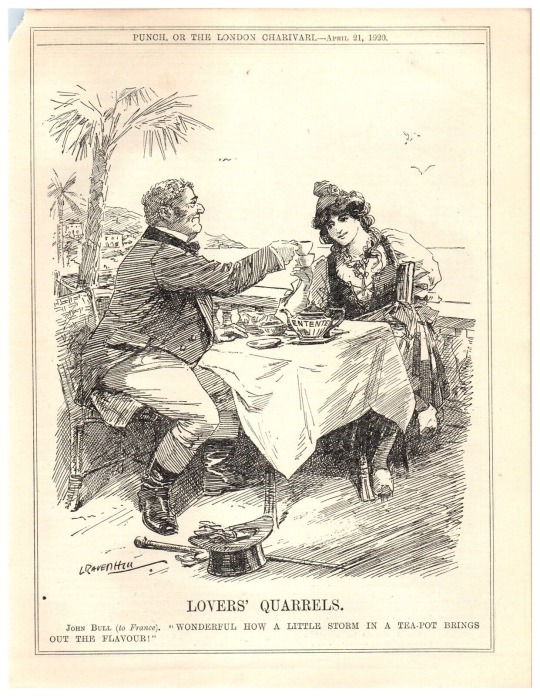
#fruk#aph france#aph fruk#aph england#hws fruk#hws france#hws england#ukfr#aph ukfr#hws ukfr#aph america#hws america
39 notes
·
View notes
Text
Friends, enemies, comrades, Jacobins, Monarchist, Bonapartists, gather round. We have an important announcement:
The continent is beset with war. A tenacious general from Corsica has ignited conflict from Madrid to Moscow and made ancient dynasties tremble. Depending on your particular political leanings, this is either the triumph of a great man out of the chaos of The Terror, a betrayal of the values of the French Revolution, or the rule of the greatest upstart tyrant since Caesar.
But, our grand tournament is here to ask the most important question: Now that the flower of European nobility is arrayed on the battlefield in the sexiest uniforms that European history has yet produced (or indeed, may ever produce), who is the most fuckable?
The bracket is here: full bracket and just quadrant I
Want to nominate someone from the Western Hemisphere who was involved in the ever so sexy dismantling of the Spanish empire? (or the Portuguese or French American colonies as well) You can do it here
The People have created this list of nominees:
France:
Jean Lannes
Josephine de Beauharnais
Thérésa Tallien
Jean-Andoche Junot
Joseph Fouché
Charles Maurice de Talleyrand
Joachim Murat
Michel Ney
Jean-Baptiste Bernadotte (Charles XIV of Sweden)
Louis-Francois Lejeune
Pierre Jacques Étienne Cambrinne
Napoleon I
Marshal Louis-Gabriel Suchet
Jacques de Trobriand
Jean de dieu soult.
François-Étienne-Christophe Kellermann
17.Louis Davout
Pauline Bonaparte, Duchess of Guastalla
Eugène de Beauharnais
Jean-Baptiste Bessières
Antoine-Jean Gros
Jérôme Bonaparte
Andrea Masséna
Antoine Charles Louis de Lasalle
Germaine de Staël
Thomas-Alexandre Dumas
René de Traviere (The Purple Mask)
Claude Victor Perrin
Laurent de Gouvion Saint-Cyr
François Joseph Lefebvre
Major Andre Cotard (Hornblower Series)
Edouard Mortier
Hippolyte Charles
Nicolas Charles Oudinot
Emmanuel de Grouchy
Pierre-Charles Villeneuve
Géraud Duroc
Georges Pontmercy (Les Mis)
Auguste Frédéric Louis Viesse de Marmont
Juliette Récamier
Bon-Adrien Jeannot de Moncey
Louis-Alexandre Berthier
Étienne Jacques-Joseph-Alexandre Macdonald
Jean-Mathieu-Philibert Sérurier
Catherine Dominique de Pérignon
Guillaume Marie-Anne Brune
Jean-Baptiste Jourdan
Charles-Pierre Augereau
Auguste François-Marie de Colbert-Chabanais
England:
Richard Sharpe (The Sharpe Series)
Tom Pullings (Master and Commander)
Arthur Wellesley, 1st Duke of Wellington
Jonathan Strange (Jonathan Strange & Mr. Norrell)
Captain Jack Aubrey (Aubrey/Maturin books)
Horatio Hornblower (the Hornblower Books)
William Laurence (The Temeraire Series)
Henry Paget, 1st Marquess of Anglesey
Beau Brummell
Emma, Lady Hamilton
Benjamin Bathurst
Horatio Nelson
Admiral Edward Pellew
Sir Philip Bowes Vere Broke
Sidney Smith
Percy Smythe, 6th Viscount Strangford
George IV
Capt. Anthony Trumbull (The Pride and the Passion)
Barbara Childe (An Infamous Army)
Doctor Maturin (Aubrey/Maturin books)
William Pitt the Younger
Robert Stewart, 2nd Marquess of Londonderry (Lord Castlereagh)
George Canning
Scotland:
Thomas Cochrane
Colquhoun Grant
Ireland:
Arthur O'Connor
Thomas Russell
Robert Emmet
Austria:
Klemens von Metternich
Friedrich Bianchi, Duke of Casalanza
Franz I/II
Archduke Karl
Marie Louise
Franz Grillparzer
Wilhelmine von Biron
Poland:
Wincenty Krasiński
Józef Antoni Poniatowski
Józef Zajączek
Maria Walewska
Władysław Franciszek Jabłonowski
Adam Jerzy Czartoryski
Antoni Amilkar Kosiński
Zofia Czartoryska-Zamoyska
Stanislaw Kurcyusz
Russia:
Alexander I Pavlovich
Alexander Andreevich Durov
Prince Andrei (War and Peace)
Pyotr Bagration
Mikhail Miloradovich
Levin August von Bennigsen
Pavel Stroganov
Empress Elizabeth Alexeievna
Karl Wilhelm von Toll
Dmitri Kuruta
Alexander Alexeevich Tuchkov
Barclay de Tolly
Fyodor Grigorevich Gogel
Ekaterina Pavlovna Bagration
Ippolit Kuragin (War and Peace)
Prussia:
Louise von Mecklenburg-Strelitz
Gebard von Blücher
Carl von Clausewitz
Frederick William III
Gerhard von Scharnhorst
Louis Ferdinand of Prussia
Friederike of Mecklenburg-Strelitz
Alexander von Humboldt
Dorothea von Biron
The Netherlands:
Ida St Elme
Wiliam, Prince of Orange
The Papal States:
Pius VII
Portugal:
João Severiano Maciel da Costa
Spain:
Juan Martín Díez
José de Palafox
Inês Bilbatua (Goya's Ghosts)
Haiti:
Alexandre Pétion
Sardinia:
Vittorio Emanuele I
Lombardy:
Alessandro Manzoni
Denmark:
Frederik VI
Sweden:
Gustav IV Adolph
62 notes
·
View notes
Text
Opera on YouTube
I've shared links to complete opera performances before, but I love to share them, so I thought I'd make a few masterposts.
These list are by no means the only complete filmed performances of these operas on YouTube, but I decided that ten links for each opera was enough for now.
By the way, some of the subtitles are just a part of the video, while others require you to click CC to see them.
Die Zauberflöte (The Magic Flute)
Hamburg Philharmonic State Opera, 1971 (Nicolai Gedda, Edith Mathis, William Workman, Christina Deutekom, Hans Sotin; conducted by Horst Stein; English subtitles)
Ingmar Bergman film, 1975 (Josef Köstlinger, Irma Urrila, Håkan Hagegård, Birgit Nordin, Ulrik Cold; conducted by Eric Ericson; sung in Swedish; English subtitles)
Salzburg Festival, 1982 (Peter Schreier, Ileana Cotrubas, Christian Bösch, Edita Gruberova, Martti Talvela; conducted by James Levine; Japanese subtitles)
Bavarian State Opera, 1983 (Francisco Araiza, Lucia Popp, Wolfgang Brendel, Edita Gruberova, Kurt Moll; conducted by Wolfgang Sawallisch; English subtitles)
Metropolitan Opera, 1991 (Francisco Araiza, Kathleen Battle, Manfred Hemm, Luciana Serra, Kurt Moll; conducted by James Levine; English subtitles)
Paris Opera, 2001 (Piotr Beczala, Dorothea Röschmann, Detlef Roth, Desirée Rancatore, Matti Salminen; conducted by Ivan Fischer; no subtitles)
Royal Opera House, Covent Garden, 2003 (Will Hartman, Dorothea Röschmann, Simon Keenlyside, Diana Damrau, Franz Josef Selig; conducted by Colin Davis; no subtitles) – Act I, Act II
La Monnaie, Brussels, 2005 (Topi Lehtipuu, Sophie Karthäuser, Stephan Loger, Ana Camelia Stefanescu, Harry Peeters; conducted by René Jacobs; French subtitles)
Kenneth Branagh film, 2006 (Joseph Kaiser, Amy Carson, Benjamin Jay Davis, Lyubov Petrova, René Pape; conducted by James Conlon; sung in English)
San Francisco Opera, 2010 (Piotr Beczala, Dina Kuznetsoca, Christopher Maltman, Erika Miklósa, Georg Zeppenfeld; conducted by Donald Runnicles; English subtitles)
La Traviata
Mario Lanfrachi studio film, 1968 (Anna Moffo, Franco Bonisolli, Gino Bechi; conducted by Giuseppe Patané; English subtitles)
Glyndebourne Festival Opera, 1987 (Marie McLaughlin, Walter MacNeil, Brent Ellis; conducted by Bernard Haitink; Italian and Portuguese subtitles)
Teatro alla Scala, 1992 (Tiziana Fabbricini, Roberto Alagna, Paolo Coni; conducted by Riccardo Muti; English subtitles)
Royal Opera House, Covent Garden, 1994 (Angela Gheorghiu, Frank Lopardo, Leo Nucci; conducted by Georg Solti; Spanish subtitles)
Teatro Giuseppe Verdi, 2003 (Stefania Bonfadelli, Scott Piper, Renato Bruson; conducted by Plácido Domingo; Spanish subtitles)
Salzburg Festival, 2005 (Anna Netrebko, Rolando Villazón, Thomas Hampson; conducted by Carlo Rizzi; no subtitles)
Los Angeles Opera, 2006 (Renée Fleming, Rolando Villazón, Renato Bruson; conducted by James Conlon; English subtitles)
Opera Festival St. Margarethen, 2008 (Kristiane Kaiser, Jean-Francois Borras, Georg Tichy; conducted by Ernst Märzendorfer; English subtitles)
Teatro Real di Madrid, 2015 (Ermonela Jaho, Francesco Demuro, Juan Jesús Rodríguez; conducted by Renato Palumbo; English subtitles)
Teatro Massimo, 2023 (Nino Machiadze, Saimir Pirgu, Roberto Frontali; conducted by Carlo Goldstein; no subtitles)
Carmen
Herbert von Karajan studio film, 1967 (Grace Bumbry, Jon Vickers; conducted by Herbert von Karajan; English subtitles)
Vienna State Opera, 1978 (Elena Obraztsova, Plácido Domingo; conducted by Carlos Kleiber; English Subtitles)
Francisco Rosi film, 1982 (Julia Migenes, Plácido Domingo; conducted by Lorin Maazel; English subtitles)
Metropolitan Opera, 1987 (Agnes Baltsa, José Carreras; conducted by James Levine; English subtitles)
London Earls Court Arena, 1989 (Maria Ewing, Jacque Trussel; conducted by Jaques Delacote; English subtitles)
Royal Opera House, Covent Garden, 1991 (Maria Ewing, Luis Lima; conducted by Zubin Mehta; English subtitles) – Acts I and II, Acts III and IV
Arena di Verona, 2003 (Marina Domashenko, Marco Berti; conducted by Alain Lombard; Italian subtitles)
Royal Opera House, Covent Garden, 2006 (Anna Caterina Antonacci, Jonas Kaufmann; conducted by Antonio Pappano; English subtitles) – Acts I and II, Acts III and IV
Metropolitan Opera, 2010 (Elina Garanca, Roberto Alagna; conducted by Yannick Nézet-Séguin; English subtitles) – Acts I and II, Acts III and IV
Opéra-Comique, 2023 (Gaëlle Arquez, Frédéric Antoun; conducted by Louis Langrée; English subtitles)
La Bohéme
Franco Zeffirelli studio film, 1965 (Mirella Freni, Gianni Raimondi; conducted by Herbert von Karajan; English subtitles)
Metropolitan Opera, 1977 (Renata Scotto, Luciano Pavarotti; conducted by James Levine; no subtitles)
Teatro alla Scala, 1979 (Ileana Cotrubas, Luciano Pavarotti; conducted by Carlos Kleiber; no subtitles)
Opera Australia, 1993 (Cheryl Barker, David Hobson; conducted by Julian Smith; Brazilian Portuguese subtitles)
Teatro Regio di Torino, 1996 (Mirella Freni, Luciano Pavarotti; conducted by Daniel Oren; Italian subtitles)
Teatro alla Scala, 2003 (Cristina Gallardo-Domâs, Marcelo Alvarez; conducted by Bruno Bartoletti; Spanish subtitles)
Zürich Opera House, 2005 (Cristina Gallardo-Domâs, Marcello Giordani; conducted by Franz Welser-Möst; no subtitles)
Robert Dornhelm film, 2009 (Anna Netrebko, Rolando Villazón; conducted by Bertrand de Billy; no subtitles)
Opera Australia, 2011 (Takesha Meshé Kizart, Ji-Min Park; Shao-Chia Lü; no subtitles)
Sigulda Opera Festival, 2022 (Maija Kovalevska, Mihail Mihaylov; conducted by Vladimir Kiradjiev; English subtitles)
#opera#youtube#complete performances#die zauberflöte#the magic flute#la traviata#carmen#la boheme#wolfgang amadeus mozart#giuseppe verdi#georges bizet#giacomo puccini
33 notes
·
View notes
Text


Today's compilation:
Freezone 3/5 1996 Deep House / Downtempo / Trip Hop
Really living up to my own name here with something a little bit random today: a mid-90s 12-inch from an ambient and chill series called Freezone that was released by Belgian label SSR. Originally launched in 1994, Freezone ended up spawning seven total volumes that explored the bounds of ambient music—as well as the many adjacent and hybrid genres that it combined itself with too—and did so with nothing but exclusive tracks that were contributed by some of electronic and alternative music's biggest names.
So this little four-song record here represents a slice of Freezone's third installment, which was subtitled as Horizontal Dancing. Issued in multiple formats, Horizontal Dancing could be acquired as either a double-disc, a quintuple-vinyl, or, sort of oddly, as five separate 12-inches that made up that quintuple-vinyl version itself, all of which could be purchased individually. And, well, today I have one of those separate 12-inches for you all—the third one 😅.
Now, obviously, there are two sides to this record, but in my estimation, one of them is great and the other one is good. And the great one is the A-side, which consists of a sweet banger from Chicago deep house legend Glenn Underground and a spacious downtempo and trip hop wanderer from short-lived UK duo 2 Player.
Glenn Underground's track is called "Tribe of Benjamin," and while it takes a little bit of time to really start to find its footing, when it eventually does, it's pretty fantastic. You kinda feel like Glenn's decided to settle on this little plateau in the early going with a somewhat meager combination of these little stabby string synths, a phat and fuzzy bassline, and a popping bit of percussion that smacks of this little piece from Andrea True Connection's disco classic, "More, More, More"—which would then later be sampled by Canadian alternative rap group Len for their all-time summer classic, "Steal My Sunshine"—but what you're not ready for is all the breathy flute that unexpectedly comes and cinches it all together 😌. And then following that section, the song proceeds to flow and grow into a fuller track, allowing for some chilly keyboard chords and squealy strings to be added into the mix as well. Sleekly premium mid-90s Windy City deep house groove there 👍.
And then for that 2 Player joint, we have "Arizona," an excellently chill and Middle Eastern-tinted vibe with blowing wind, rattling rattlesnake tails, and a whole lot of varied synth work that more or less speaks to the expertise of both of the duo's own members. In '95, they debuted with a 12-inch on UK electronic powerhouse Ninja Tune, then in' 96, they made this exclusive for Freezone 3, and since then, Daniel Pemberton has gone on to become a renowned composer for film, TV, and videogames, with his biggest claims to fame being his scorings of Spider-Man: Into the Spider-verse, its sequel, and Ocean's 8; and Jon Tye would further grow his own leftfield electronic label, Lo Recordings, which has been able to boast a catalog that consists of Aphex Twin, Susumu Yokota, Squarepusher, Red Snapper, Fischerspooner, Blur, Grimes, Luke Vibert, Jean Jacques Perrey, Rothko, Four Tet, and Thurston Moore 😯. Quite a varied set of talented folks there!
So a couple dope and exclusive 90s electronic gems on this Belgian 12-inch that happens to form one-fifth of a much larger compilation. Like I said, the flipside of this record is good too—a solid deep house cut from Matthew Herbert aka Doctor Rockit aka Wishmountain and a downtempo/ambient tune from longtime Scottish trip hopper Howie B.—but I don't think that either of those offerings are really as enjoyable as what's on the A-side here.
Highlights:
Glenn Underground - "Tribe of Benjamin" 2 Player - "Arizona"
#deep house#house#house music#downtempo#trip hop#dance#dance music#chillout#chillout music#electronic#electronic music#music#90s#90s music#90's#90's music
7 notes
·
View notes
Text
lacan'a göre bilinçdışı, varoluşumuzun bizden kaçan ve üzerinde hiçbir denetime sahip olamadığımız parçasıydı, fakat aynı zamanda bastırılan duygu ve arzularımızı yöneten de oydu.
sean homer - jacques lacan
#kitap#edebiyat#blogger#felsefe#kitaplar#blog#kitap kurdu#jacques lacan#sean homer#psikanaliz#psicologia#bruce fink#lacancı özne#freudian#sigmund freud#carl jung#julia kristeva#albert camus#jean paul sartre#elias canetti#insanın taşrası#bilinçdışı#adam phillips#byung chul han#vladimir nabokov#alain de botton#simone de beauvoir#gilles deleuze#walter benjamin#roland barthes
8 notes
·
View notes
Text

(L-R) Benjamin West by John Downman; Prince Augustus Frederick, Duke of Sussex by Guy Head; Mrs John Montresor by John Singleton Copley; Bertrand Barere de Vieuzac by Jean-Louis Laneuville; Jacques Louis David Self Portrait; Man attributed to Francis Alleyne; Marie-Jean Herault by Jean-Louis Laneuville; Gulian Verplanck by John Singleton Copley; General Jozef Kossakowski by Kazimierz Wojniakowski
#clothing in art#mens fashion history details that make me swoon#historical fashion#regency#collars#ties#scarves#2d art
6 notes
·
View notes
Text

Photographie de Jean-Marie Périer pour le journal Salut les Copains, 12 avril 1966.
Johnny Hallyday, Sylvie Vartan, Jean-Jacques Debout, Hugues Aufray, Catherine Ribeiro, Eddy Mitchell, Danyel Gerard, Claude Ciari, France Gall, Serge Gainsbourg, Frankie Jordan, Michèle Torr, Sheila, Chantal Goya, Dany Logan, Michel Paje, Ronnie Bird, Monty, Sophie, Noël Deschamps, Jacky Moulière, Annie Philippe, Claude François, Eileen, Guy Mardel, Billy Bridge, Michel Berger, Michel Laurent, Nicole (Surf ), Salvatore Adamo, Thierry Vincent, Tiny Yong, Antoine, Françoise Hardy, Benjamin, Dick Rivers, Monique (Surf ), Hervé Vilard, Jocelyne, Dave (Surf ), Rocky (Surf ), Coco (Surf ), Pat (Surf ), Pascal (Le Petit Prince), Richard Anthony et Christophe.
9 notes
·
View notes
Text
2024 olympics South Africa roster
Archery
Wian Roux (Pretoria)
Athletics
Adrian Swart (Caledon)
Akani Simbine (Kempton Park)
Phatutshedzo Maswanganyi (Soweto Township)
Benjamin Richardson (Pretoria)
Wayde Van Niekerk (Kraaifontein)
Zakithi Nene (Ladysmith)
Lythe Pillay (Benoni)
Edmund Du Plessis (Pretoria)
Tshepo Tshite (Pretoria)
Ryan Mphahlele (Johannesburg)
Adriaan Wildschutt (Ceres)
Bayanda Walaza (Pretoria)
Bradley Nkoana (Potschefstroom)
Sinesipho Dambile (Dimbaza)
Gardeo Isaacs (Cape Town)
Antonie Nortje (College Station, Texas)
Stephen Mokoka (Mahikeng)
Elroy Gelant (Pacaltsdorp)
Brian Raats (Tshwane)
Jovan Van Vuuren (Bloemfontein)
Cheswill Johnson (Johannesburg)
Kayle Blignaut (Rome, Italy)
Francois Prinsloo (Worcester)
Victor Hogan (Vredenburg)
Cian Oldknow (Johannesburg)
Miranda Coetzee (Phokeng)
Prudence Sekgodiso (Gauteng)
Marioné Fourie (Vanderbijlpark)
Zenéy Geldenhuys (Pretoria)
Rogail Joseph (Worcester)
Irvette Van Zyl (Sandton)
Gerda Steyn (Bothaville)
Miné De Klerk (Welkom)
Jo-Ané Van Dyk (Worcester)
Badminton
Johanita Scholtz (Cape Town)
Canoeing
Hamish Lovemore (Durban)
Andy Birkett (Pretoria)
Tiffany Koch (Cape Town)
Esti Olivier (Bloemfontein)
Climbing
Mel Janse-Van Rensburg (Lephalale)
Josh Bruyns (Pretoria)
Lauren Mukheibir (Bryanston)
Aniya Holder (Gqeberha)
Cycling
Ryan Gibbons (Johannesburg)
Jean Spies (Randburg)
Alan Hatherly (Durban)
Vincent Leygonie (Krugersdorp)
Ashleigh Pasio (Pretoria)
Tiffany Keep (Durban)
Candice Lill (Port Shepstone)
Miyanda Maseti (Johannesburg)
Diving
Julia Vincent (Johannesburg)
Equestrian
Alexander Peternell (Roodepoort)
Fencing
Harry Saner (Johannesburg)
Field hockey
Andrew Hobson (Somerset West)
Mustapha Cassiem (Cape Town)
Abdud Cassiem (Cape Town)
Jacques Van Tonder (Bloemfontein)
Bradley Sherwood (Pietermaritzburg)
Keenan Horne (Cape Town)
Tevin Kok (Kokstad)
Matthew Guise-Brown (London, U.K.)
Ryan Julius (Cape Town)
Daniel Bell (Johannesburg)
Nic Spooner (Hamburg, Germany)
Zenani Kraai (Johannesburg)
Nqobile Ntuli (Durban)
Sam Mvimbi (Plettenberg Bay)
Gowan Jones (Durban)
Calvin Davis (Botha's Hill)
Stephanie Botha (Oudtshoorn)
Anelle Lloyd (Bethal East)
Celia Seerane (Pretoria)
Edith Molikoe (Gqeberha)
Kristen Paton (Cape Town)
Thati Zulu (Pretoria)
Dirkie Chamberlain (Pretoria)
Paris-Gail Isaacs (Bloemfontein)
Taheera Augousti (Bloemfontein)
Erin Christie (Johannesburg)
Ntsopa Mokoena (Bethlehem)
Hannah Pearce (Johannesburg)
Ongeziwe Mali (Gqeberha)
Marié Louw (Bloemfontein)
Kayla De Waal (Clermont)
Quanita Bobbs (Cape Town)
Kayla Swarts (Bloemfontein)
Golf
Christiaan Bezuidenhout (Johannesburg)
Frederik Van Rooyen (Johannesburg)
Ashleigh Buhai (Johannesburg)
Paula Reto (Cape Town)
Gymnastics
Cait Rooskrantz (Johannesburg)
Judo
Geronay Whitebooi (Gqeberha)
Rowing
Christopher Baxter (Johannesburg)
John Smith (Germiston)
Paige Badenhorst (Benoni)
Rugby
Chris Grobbelaar (Durban)
Ryan Oosthuizen (Stellenbosch)
Impi Visser (Pongola)
Mogamat Davids (Cape Town)
Quewin Nortje (Pretoria)
Tiaan Pretorius (Stellenbosch)
Tristan Leyds (Somerset West)
Selvyn Davids (Jeffrey's Bay)
Shaun Williams (Mooinooi)
Rosko Specman (Makhanda)
Siviwe Soyizwapi (Nqanqarhu)
Shilton Van Wyk (Bloemfontein)
Ronald Brown (Pretoria)
Mathrin Simmers (Somerset West)
Zintle Mpupha (Xesi)
Sizophila Solontsi (Durban)
Veroeshka Grain (Stellenbosch)
Kemisetso Baloyi (Soshanguve)
Nadine Roos (Cape Town)
Liske Lategan (Groblersdal)
Byrhandré Dolf (Bloemfontein)
Ayanda Malinga (Pretoria)
Libbie Janse-Van Rensburg (Lephalale)
Marlize De Bruin (Johannesburg)
Maria Tshiremba (Johannesburg)
Skateboarding
Dallas Oberholzer (Durban)
Brandon Valjalo (Johannesburg)
Boipelo Awuah (Kimberley)
Surfing
Jordy Smith (Cape Town)
Matt McGillivray (Jeffery's Bay)
Sarah Baum (Durban)
Swimming
Pieter Coetze (Pretoria)
Chad Le Clos (Durban)
Matt Sates (Pietermaritzburg)
Tatjana Smith (Johannesburg)
Kaylene Corbett (Bloemfontein)
Erin Gallagher (Durban)
Aimee Canny (Knysna)
Rebecca Meder (Cape Town)
Triathlon
Henri Schoeman (Vereeniging)
Jamie Riddle (Stellenbosch)
Vicky Van Der Merwe (Cape Town)
Wrestling
Nicolaas De Lange (Bloemfontein)
#Sports#National Teams#South Africa#Celebrities#Races#Texas#Italy#Boats#Animals#Fights#Hockey#U.K.#Germany#Golf
2 notes
·
View notes